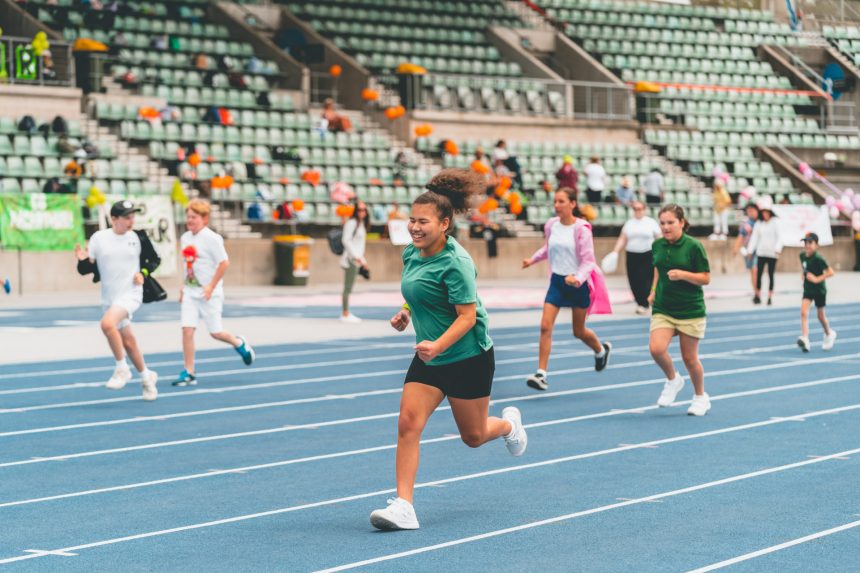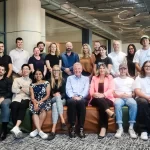A new research study by the Aspect Research Centre for Autism Practice (ARCAP) shows lower participation in organised physical activity and sports by Autistic children and adults, despite a willingness to take part.
The study, which investigated major barriers to participation and ways to mitigate these, reveals 74 percent of Autistic children would like to participate in organised physical activity more than they currently do.
Findings from the research also showed 69 percent of Autistic adults face barriers joining organised sports.
The research shows that while some young Autistic children may participate at a similar level to their peers, as they age, particularly as they become adults, there is a clear pattern showing Autistic people engage in less physical activity compared to non-autistic people.
Unique needs demand unique approaches
Dr Chris Edwards, Postdoctoral Researcher at ARCAP said there is an unmet need and strong desire within the Autistic community for more accessible and inclusive opportunities for physical activities.
But with many Autistic people experiencing discrimination, misunderstanding of their communication and sensory needs and exclusion in sports, Dr Edwards says their findings show “that negative past experiences significantly contribute to Autistic individuals disengaging entirely from sports, which is of major concern, considering 70 percent of Autistic people experience mental health challenges and would benefit from physical activity”.
“For Autistic individuals, physical activity is a crucial component of mental health care,” Dr Edwards told EducationDaily.
“It not only improves physical health but also enhances mood, facilitates better sleep, and encourages social connections. These benefits are key to supporting the well-being of Autistic people, underscoring the importance of incorporating regular physical activity into their lives.”
Overcoming reactions of others is a major obstacle
While personal challenges do exist, DR Edwards says the study revealed a major hurdle for Autistic individuals is managing how others react, particularly when they share their Autistic identity, with some participants reporting ‘cold shoulders’ from team members and clubs.
“The good news is that there are positive steps that can be taken to create a more inclusive sporting culture,” he says.
“The study revealed this can be achieved through improved understanding and attitudes, along with reviewing club policies to mitigate accessibility issues, all key to increasing organised sports participation across the autism lifespan in Australia.”
The study showed the top five barriers impacting Autistic people’s participation in physical activity are:
- Communication differences – difficulty following instructions, understanding rules of the game and talking to coaches and teammates (69 percent for children, 52 percent for adults)
- Sensory differences – loud noises, uncomfortable uniforms, close proximity to teammates (65 percent for children, 46 percent for adults)
- Lack of awareness of autism (57 percent for children, 27 percent for adults)
Physical difficulties – poor coordination, hard to master skills (45 percent for children, 27 percent for adults)
Feeling excluded or left out (41 percent for children, 33 percent for adults)
Dr Edwards says that addressing these issues is critical to ensuring that everyone, regardless of their neurodiversity, feels welcome and accommodated in organised physical activities and sports in Australia.
“Aspect’s Autism Friendly team, which works with organisations to create autism friendly environments, is using the research findings to help sporting associations and clubs create better opportunities for Autistic individuals to enjoy the benefits of physical activity,” Dr Edwards says.
Learning from lived experience
Maryanne Gosling, National Director, Aspect Education and says that ensuring sports are perceived positively by Autistic individuals, especially at a young age, is crucial for continued engagement in physical activities – something she told EducationDaily is vital for overall well-being.
Dr Edwards agrees.
“Autistic adults have often faced exclusion and discrimination across all aspects of life, and
sport is no different,” he told EducationDaily.
“This has resulted in Autistic adults withdrawing from sports, influenced by negative experiences (e.g. bullying) from their youth. Addressing these past exclusions is vital for developing sports programs that are truly inclusive and welcoming for Autistic
participants.”
Inclusivity is critical
Across Aspect schools, Ms Gosling told EducationDaily their national autism specific sport carnival, provides a wide range of sporting activities in an environment that is adapted so that all participants can have multiple inclusive experiences throughout the day with their peers and support staff from across Aspect schools.
“Many mainstream sporting activities and teams are not accessible for children on the autism spectrum, so tailoring sports environments to the diverse needs and preferences of Autistic children, can profoundly transform their experience into something positive and enriching,” Ms Gosling says.
“This will help support engagement and participation in sporting activities through to adulthood.”
The study revealed the top recommendations to making physical activities more inclusive are:
- Work with sporting organisations to provide autism training and resources to improve staff/volunteer knowledge, skills and inclusive practice
- Partner with sporting bodies to pilot flexible program options including non-competitive streams, mixed age groups, sensory-friendly uniforms
- Advocate for sporting organisations to allow support persons to accompany Autistic participants to training and games
- Develop guidelines and resources to assist sporting organisations in addressing barriers like communication differences and anxiety
- Promote stories of Autistic sporting participation to build community awareness and tackle stigma
- Facilitate opportunities for Autistic community input into program design. Showcase examples of inclusive physical activity programs that are working well.








